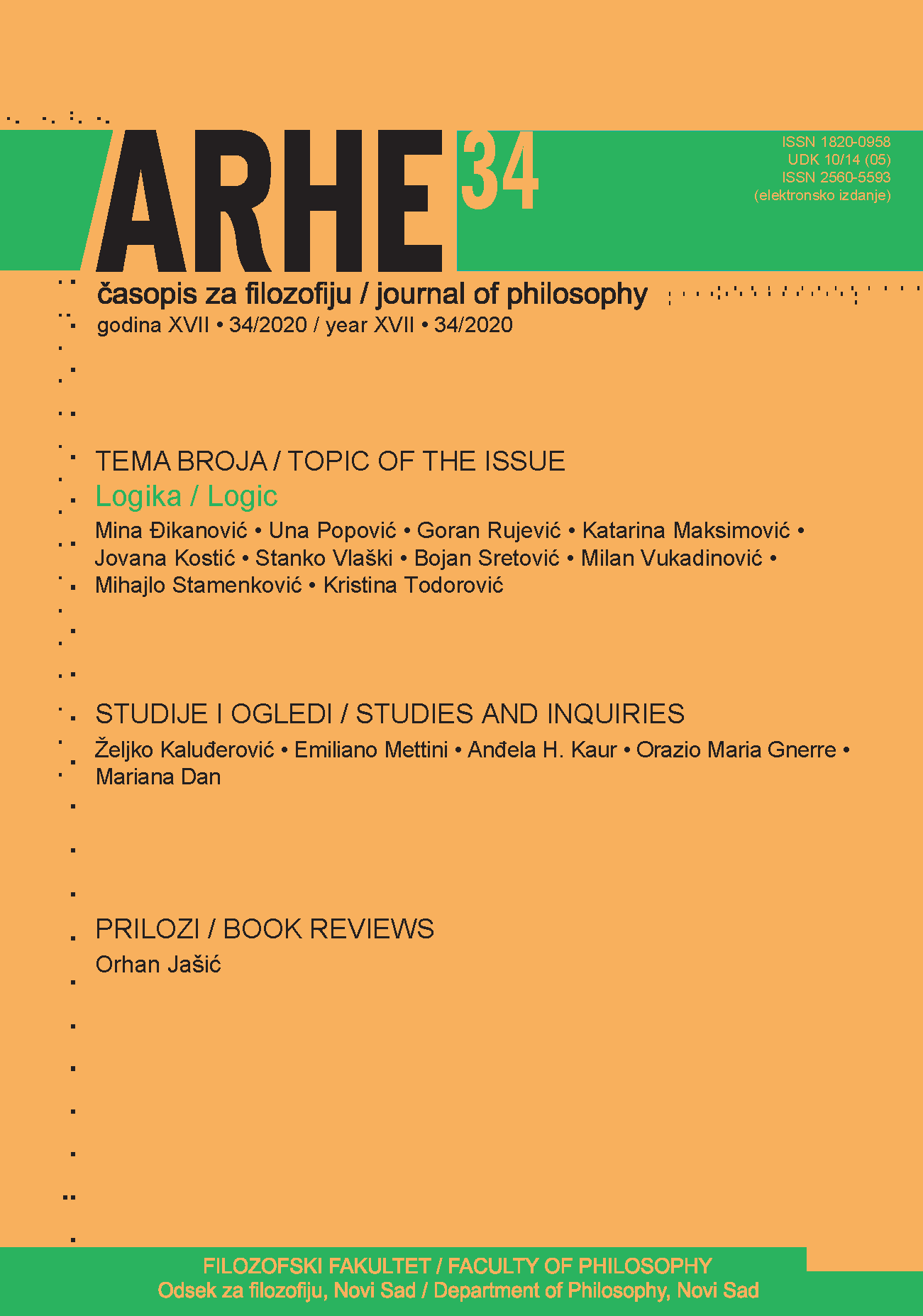LOGIC FOR THE THEORY OF CONCEPTS
Main Article Content
Abstract
In this paper, we follow Gödel’s remarks on an envisioned theory of concepts to determine which properties should a logical basis of such a theory have. The discussion is organized around the question of suitability of the classical predicate calculus for this role. Some reasons to think that classical logic is not an appropriate basis for the theory of concepts, will be presented. We consider, based on these reasons, which alternative logical system could fare better as a logical foundation of, in Gödel’s opinion, the most important theory in logic yet to be developed. This paper should, in particular, motivate the study of partial predicates in a certain system of three-valued logic, as a promising starting point for the foundation of the theory of concepts.
Article Details
References
Crocco, G. & Bernard, J., (2016) “Gödel and the Paradox in Max Phil X” in Kurt Gödel: Philosopher-scientist, 978-2-85399-976-2, hal-01473451.
Feferman, S., (1984) “Toward Useful Type-Free Theories I”, The Journal of Symbolic Logic Vol. 49, No. 1, pp. 75-111.
Grocco, G., van Atten, M., Cantu, P., Engelen, E. M., (2017) “Kurt Gödel Maxims and Philosophical Remarks Volume X”, hal-01459188.
Gödel, K., (1944) “Russell’s Mathematical Logic”, in: Collected Works, II: Publications 1938-1974, Oxford University Press, Oxford (1990), pp. 119-141.
Kleene, S. C., (1971) Introduction to Metamathematics, Wolters-Noordhoff, Groningen.
Reinhardt, W. N., (1986) “Some Remarks on Extending and Interpreting Theories with a Partial Predicate for Truth”, Journal of Philosophical Logic Vol. 15, pp. 219-251.
Wang, H., (1996) A Logical Journey: From Gödel to Philosophy, MIT Press, Cambridge, MA.
